Your basket is currently empty!
-
Race Across the World with Project Trust
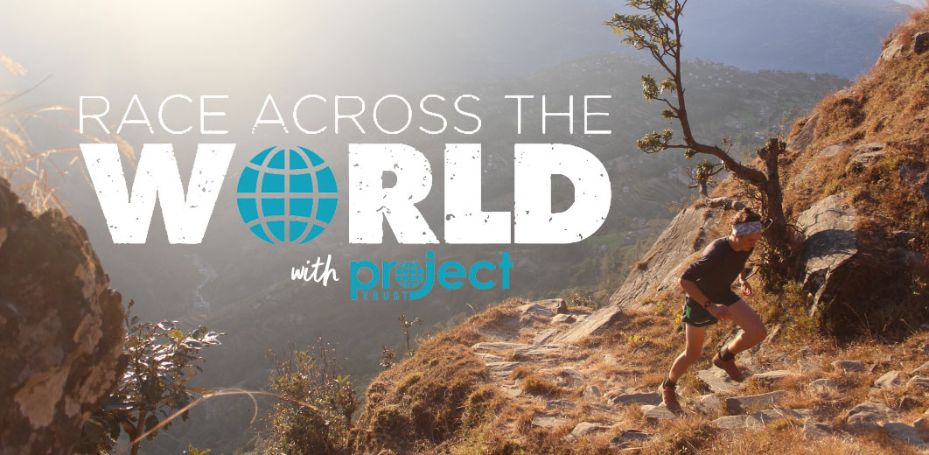

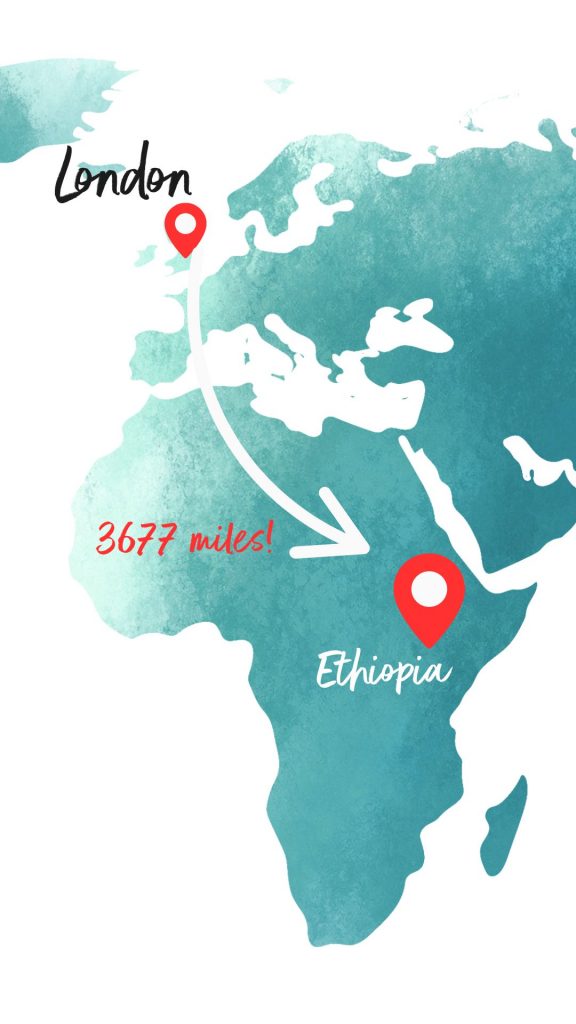
We are excited to share that our Race Across the World challenge is in full swing.
Over 60 of our currently fundraising Volunteers are racing in teams to cover 3,677 virtual miles – the distance from London Heathrow to Ethiopia, where Project Trust’s very first project began back in 1967.
These incredible young people are running, walking, cycling, swimming, and more to raise the funds they need to make their international placements a reality.
Plus, they’re not going it alone. Over 50 Project Trust Alumni have offered a helping hand, joining in to bag the miles, share encouragement, and show what it means to stand behind the next generation of Volunteers.
This is the first time Project Trust has launched a campaign specifically to support Volunteers’ fundraising efforts – a reflection of just how tough it has become for young people to raise what they need.
Become a Final Sprint Supporter
As we prepare for the final stretch of our Race Across the World campaign, we are asking Alumni to become Final Sprint Supporters and help our Volunteers reach the finish line.
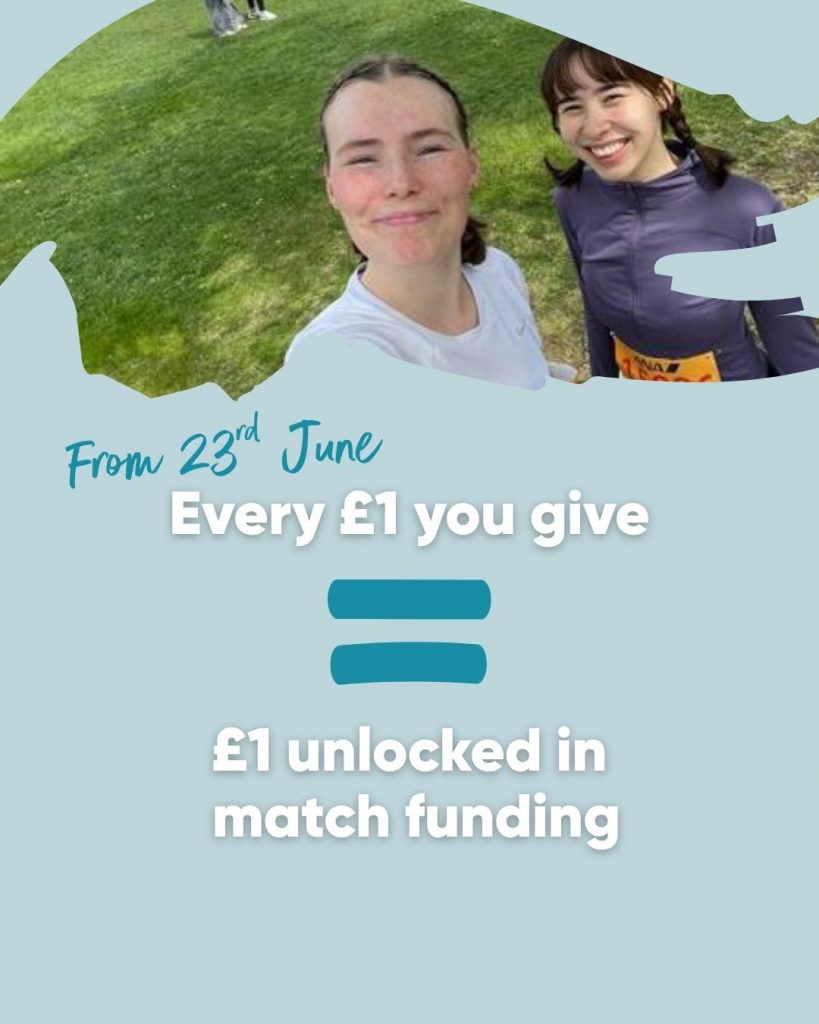
From 23rd to 29th June, every donation will be doubled through our Match Fund Campaign. By becoming a Final Sprint Supporter, you’re pledging your support for the final week of our campaign, when every donation will be matched.
Your gift will directly help Volunteers overcome financial barriers and reach their placements this September.
Make your pledge today and double your impact.
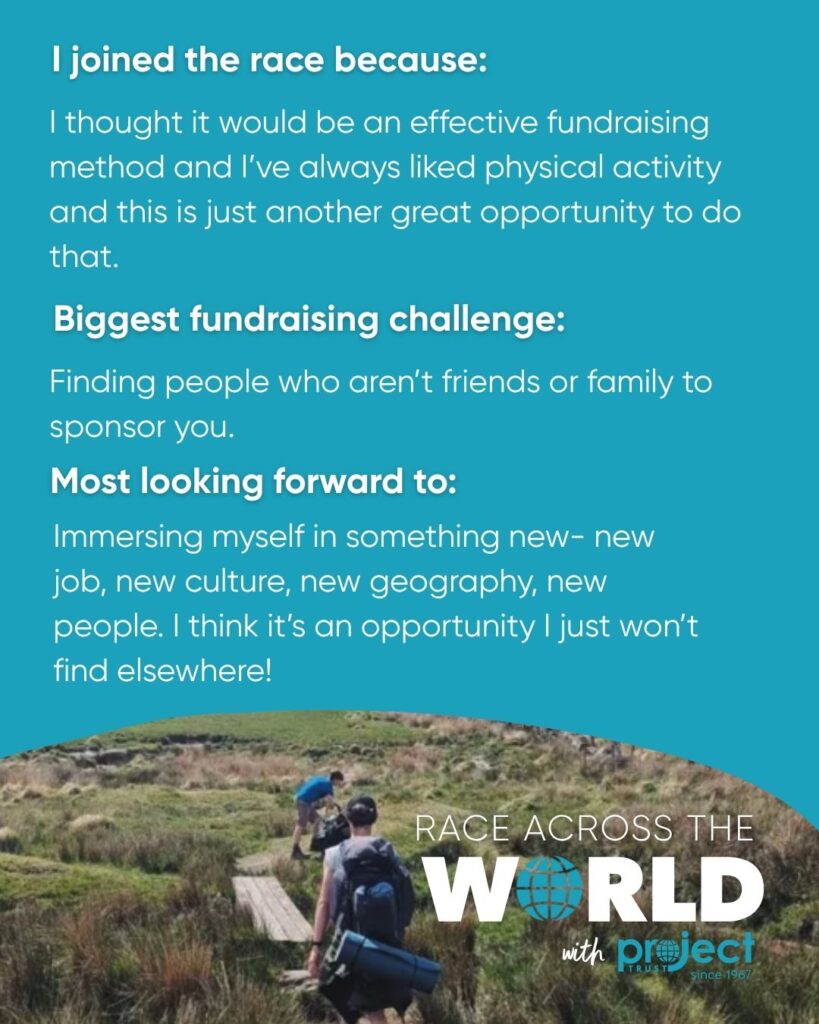
Follow our Instagram to track the Volunteer’s progress!
-
Kicking Back Stronger: Callum’s Journey of Growth and Resilience
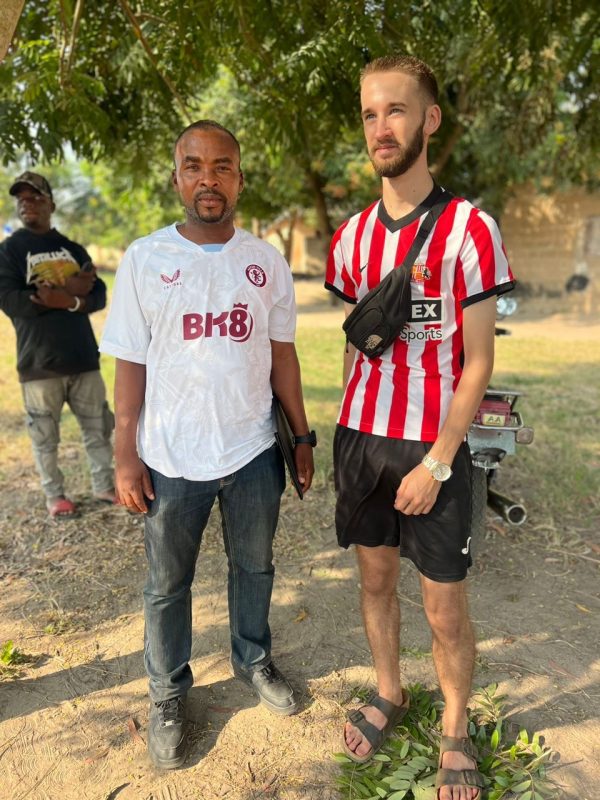
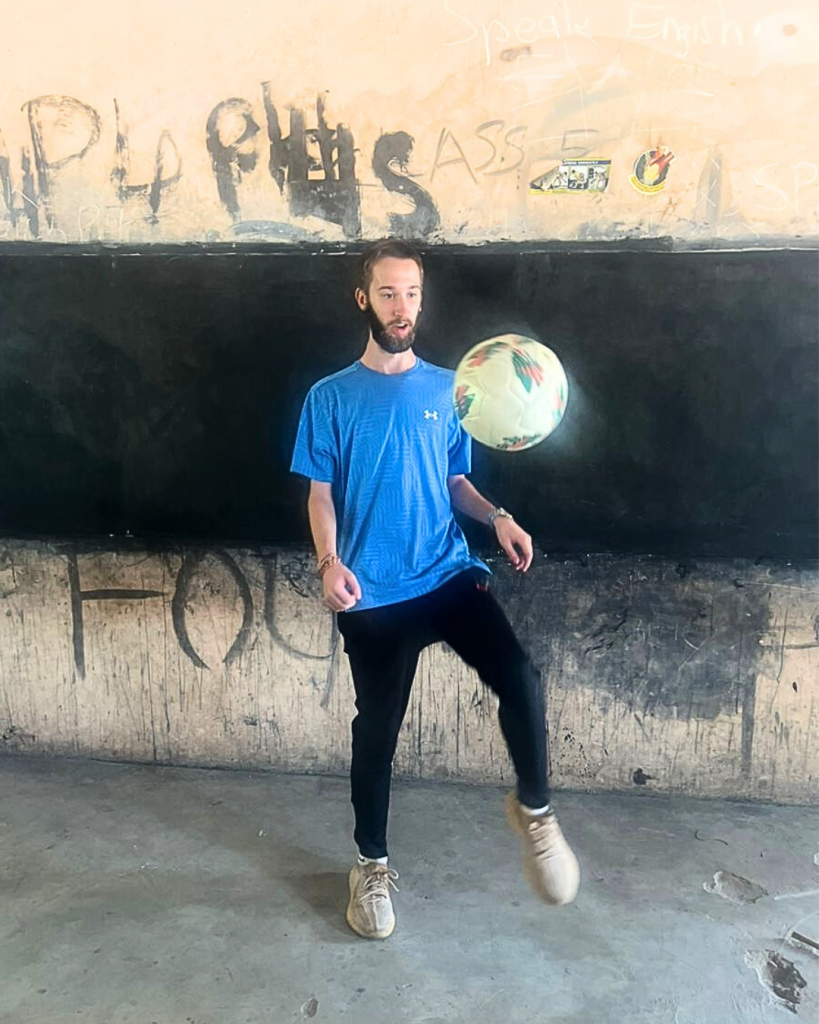
For Callum, football has always been more than just a game, it’s been a compass, guiding him through the twists and turns of life. Now volunteering in Ghana with Project Trust, his story is one of resilience, rediscovery, and the profound impact a year of volunteering can have on rebuilding confidence and restoring lost passions.


Callum’s love for football was born in the back garden, playing with his two older brothers. After moving to Scotland in 2010, he joined a club to learn the basics, and by age six, he was proudly standing between the posts as a goalkeeper. For seven years, he dedicated himself to his first team, where football was both a passion and a source of stability.
A pivotal moment came when he was scouted by a more competitive team after impressing a coach during a school match. Callum made the leap, encouraged by supportive coaches and his proven skills on the pitch. This transition marked his first lesson in stepping out of his comfort zone, a theme that would echo throughout his journey.
In 2021, Callum faced a period of instability, moving between two teams in just six months. The uncertainty led him to question his future in football. However, a teammate introduced him to refereeing, and in October 2022, Callum officiated his first match. Instantly, he was hooked. Refereeing not only kept him connected to the sport he loved but also provided a newfound sense of purpose and ability to earn a wage from what he loved.
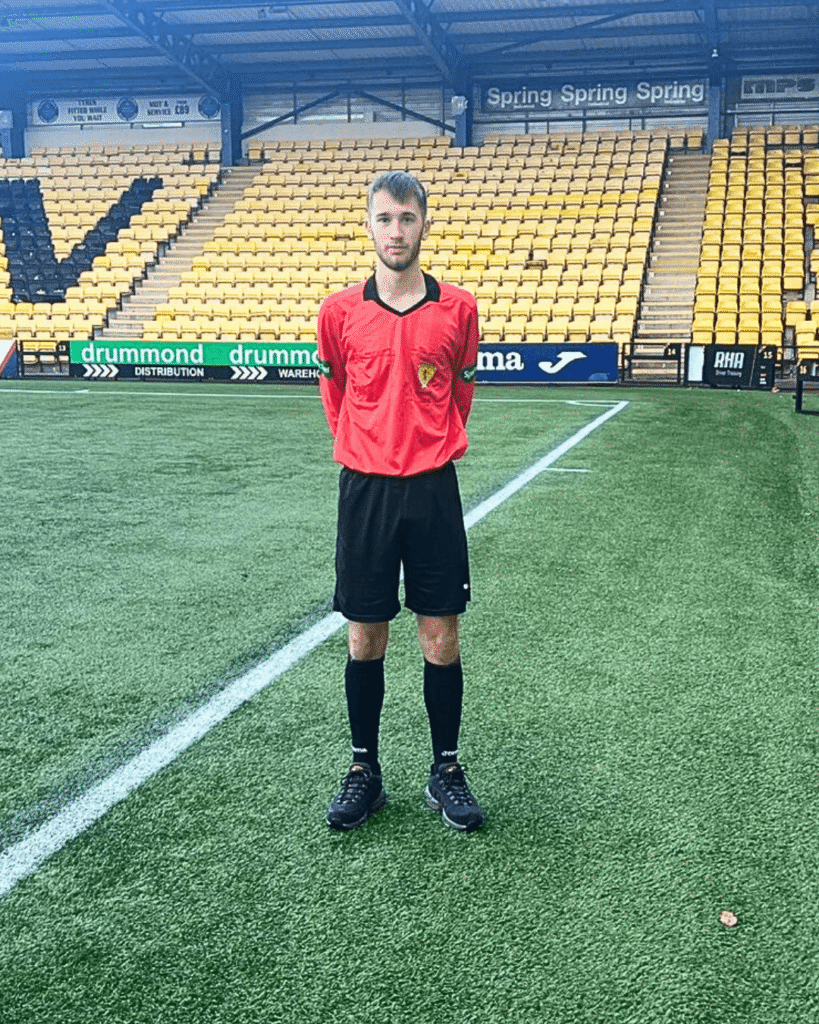
Yet, football had more trials in store. In 2023, after struggling with limited playtime in a new under-20s team, Callum faced an even greater setback, he dislocated his shoulder just 10 minutes into the match. The injury left him feeling helpless, unable to play or referee, the very activities that had kept his passion for the sport alive. Callum was told that if he didn’t have surgery to stabilise his shoulder he would never play football again.
The road to recovery was both physical and mental. Surgery was inevitable, and Callum approached it with determination, knowing it was the key to reclaiming his passion. Though the recovery sidelined him from refereeing temporarily, his resilience never wavered.

Arriving in Ghana marked a turning point. Eager to reconnect with football, Callum quickly found a new home with the Kickers, a local team that welcomed him with open arms. Back on the pitch, he rediscovered not just his skills but also his strength and confidence in the sport. A fun fact about his new team, Kickers FC, is that one of their former players, Terry Yegbe, was born in their town Akatsi, represented the Kickers in his youth, and is now playing internationally for Ghana.
The friendships he’s formed and the mentorship from his Coach Alex, fondly known as ‘The Don’ have been instrumental in his journey.
Below: (Left) Callum with his country group
(Right) and with Coach Alex on the left.


Callum’s story is more than just a tale of sports and setbacks. It’s a testament to the transformative power of volunteering with Project Trust. Through his year in Ghana so far, he’s not only rebuilt his relationship with football but also rediscovered parts of himself he thought were lost. His journey shows that sometimes, stepping away from the familiar and immersing yourself in a new environment can be the most profound path to personal growth and empowerment.
Find our more about Volunteering in Ghana here
-
Pick Ups for Ukraine
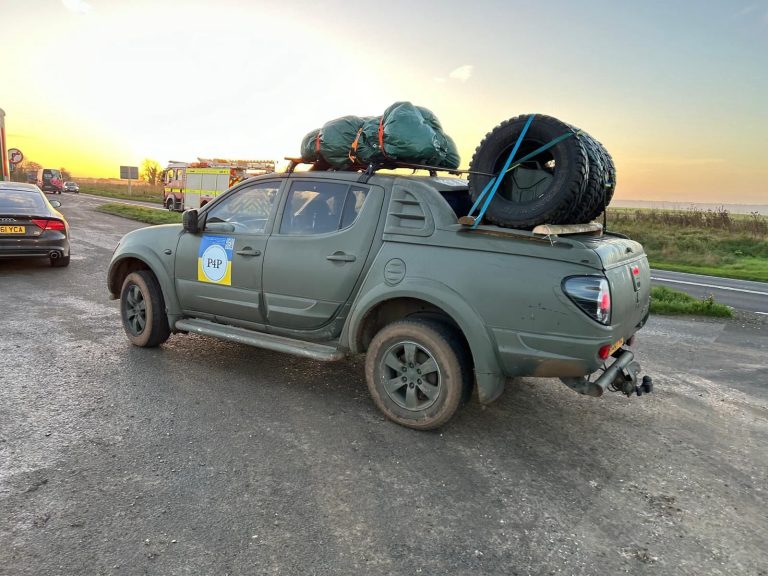
Becs and I met nearly forty years ago when we volunteered together in Saos, Kenya. Like many Project Trust volunteers, we forged a strong bond and have remained close friends ever since. A few weeks ago, in mid-January, Becs phoned me and asked whether I would be interested in being a co-driver to deliver humanitarian aid and a donated 4×4 vehicle to Ukraine. Becs and her husband Tris had already completed this trip four times over the past two years, so despite initial nerves, I felt in good hands and agreed to help.

We would be part of a 38-vehicle convoy under the P4P charity https://www.pickupsforpeace.co.uk/, who have already delivered over 570 second-hand vehicles and aid over the past few years. The vehicles were to be predominantly used for medical evacuation for wounded soldiers on the front line; delivering medical supplies; and helping with mine clearance.
On Wednesday 19th February, we left the UK via the Eurotunnel in our Ford Ranger filled with medical supplies – surgical masks, syringe packs, bandages, face shields, iodine incise drapes, and other miscellaneous bits and pieces. The journey took us approximately 1,400 miles across Europe through France, Germany and Poland, where we crossed the border into Ukraine. Our final destination was the beautiful city of Lviv, which was about two hours from the border and required a full police escort: 38 vehicles, flashing lights, nose to tail, no stopping (even for red lights!) – an exhilarating experience, and Becs drove brilliantly.
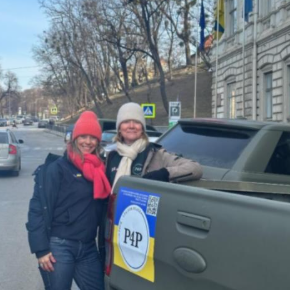
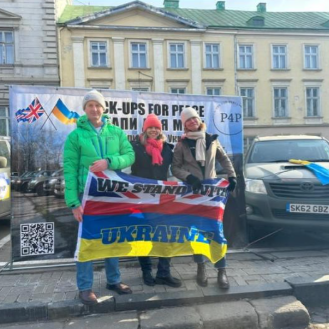
After three days of travelling, we arrived in Lviv and handed over our vehicles and supplies to our Ukrainian friends. There was a lovely moment speaking to the Ukrainian soldiers and the Governor of Lviv, as well as meeting some MPs from the UK who were on their way to Kyiv. We then spent two nights in Lviv, which allowed some of us to visit a local hospital where some of the team were helping with prosthetic limbs; a potato farm that provided starch for a variety of uses in both food and health; a drone research centre; as well as a chance to see the beautiful city of Lviv – think Prague without the tourism.
Our return trip involved coaches and minibuses, and most of the team flew back to the UK via Kraków. I did take the opportunity to visit Auschwitz; Becs had already visited after being part of a previous convoy.
As I reflect on my trip, it’s clear that living here in the UK makes it very easy for world events to be out of sight and out of mind. Being in Ukraine helped to focus my thoughts, and I have been reflecting on what I experienced. There were moments of sorrow and sadness: listening to a priest read out the names of soldiers at a memorial service, looking at flags with the name, birth and death dates of soldiers, hugging a father grieving for his son. As well as moments of hope: watching an old lady light a candle in a Catholic church, climbing to the top of the Town Hall tower and seeing the city spread out in the sunshine, reading messages written on paper angels made by local schoolchildren. And moments of appreciation: standing in sub-zero temperatures being thanked by soldiers and townsfolk for our continuing support; standing arm in arm with a woman whose husband is currently fighting; buying a record from a local stallholder who, when he heard of what we had done, wanted a photo and gave a huge hug.
My overarching impression is that although there is sadness, there is also hope, an appreciation of friendship and support, and immense pride. I would urge anyone who is interested in helping this charity https://www.pickupsforpeace.co.uk/ to either take part and/or donate a 4×4 vehicle and/or donate funds – there are lots of convoys being planned in the coming months, so it’s never too late.
Kate Scott, Project Trust Alumni
-
The First Journey to Ethiopia- Chris Schenk
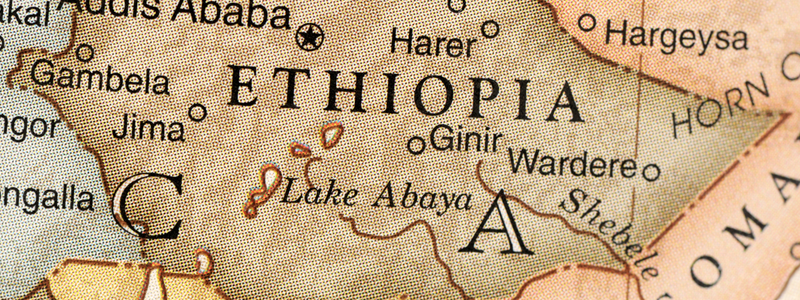
My journey to Ethiopia followed the rules of ‘Race across the World’: I had no credit card, there were no smartphones, and I got to Ethiopia (though not to Addis Ababa) without flying.
Project sent me there to teach in the Abba Hanna Jimma School, run under the auspices of Prince Iskinder Desta, Haile Sellassie’s oldest grandson, who I think had been at school with Captain Bristol, as he was when I was recruited. I was given passage on the Lion of Judah, an Ethiopian cargo ship, and boarded it in the East India Docks in London in July 1967. I was one of only two passengers and we had our meals with the Dutch officers. The first part of the voyage was full of interest, with stops in Rotterdam, Antwerp and Genoa, but then, instead of going through the Suez Canal, which was still closed after the Six-Day War, we embarked on a four-week journey around the Cape of Good Hope, with only one stop of three hours to refuel in Dakar, Senegal. For the most part, it was extremely boring. We only saw land as we passed South Africa, and were visited by a variety of sea-birds including a wandering albatross. In desperation, I asked the Captain for a job and he gave me the task of typing out the ship’s manifest on a jumbo typewriter. I had my eighteenth birthday on the 25th August, which I celebrated by presenting the officers with a bottle of port to drink after dinner. I remember that it cost me seven shillings and six pence – properly duty free!
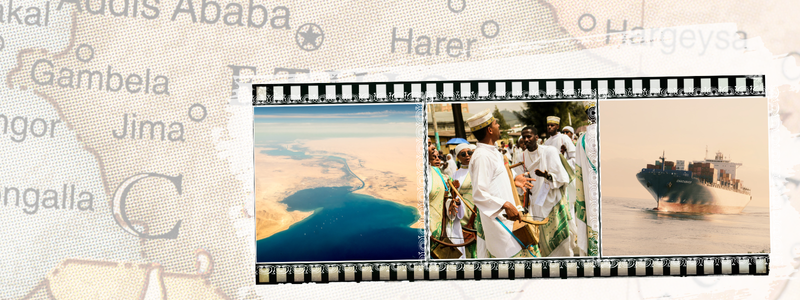
Soon afterwards, we arrived in Assab, now in Eritrea, but then in Ethiopia. Eritrea had been annexed by Ethiopia in 1962, giving Ethiopia a coast-line and allowing it to develop a navy. Prince Iskinder Desta had been appointed the head of the navy, and his rank went up as the navy acquired new ships. When I knew him, he was a Commodore. Staff at the Navy base in Assab had been primed to look after me, and I was taken, on the evening I arrived, to a beach party to celebrate Ethiopian New Year. The Ethiopian calendar is some seven years behind the Gregorian, so it was the beginning of 1960.
A few days later, I was put on a plane to Addis Ababa. I had never flown before and it was a magical experience, in a small plane flying low over the Danakil Desert and then up into the mountains, to arrive in Addis, some eight thousand feet above sea-level, and still in the rainy season, so it was cold and wet. Later, in the dry season, I reflected that in 24 hours in Addis, you experienced the same range of temperatures as in a whole year at home. By night it was chilly enough to need a coat, but in the afternoon it was a little warmer than a British summer’s day.
My fellow Project Volunteer, Michael Coke, arrived by plane, shortly before term started and we were found a house within five minutes walk of the school, which we shared with Tim Beatty, whose father, Captain Beatty, was employed by the Ethiopian Navy to train their personnel in a camp in the hills above Massawa, far to the North of Addis.
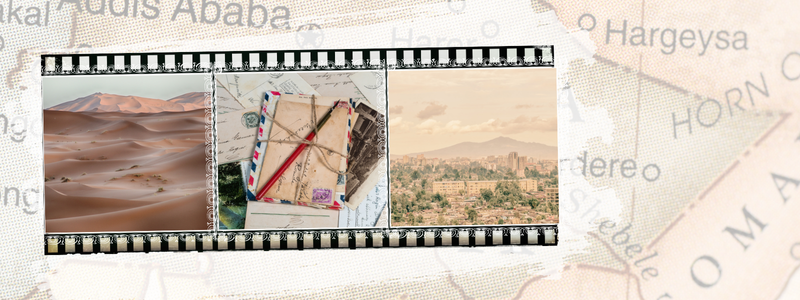
My only means of communicating with home was by letter, and when I arrived there were several waiting for me in the post restante at the main Post Office in Addis. It took about ten days for letters to arrive, so nearly three weeks for an exchange of correspondence. Only once, during my time in Ethiopia, did I speak to my family on the phone. It was a laborious and costly experience. I booked a three minute call shortly before Christmas, and was put through at the main Post Office, with the pips going very soon after I began to speak!
